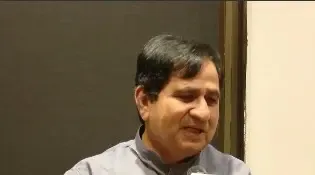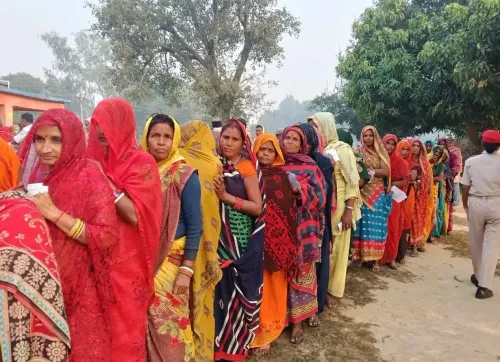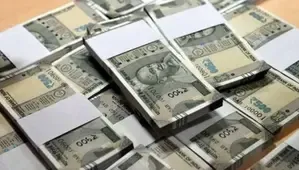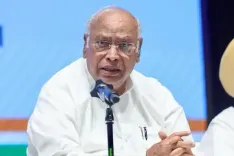Why Was the Structure Dedicated to Bangladesh's Liberation War Demolished? New Installation Planned for July Protest
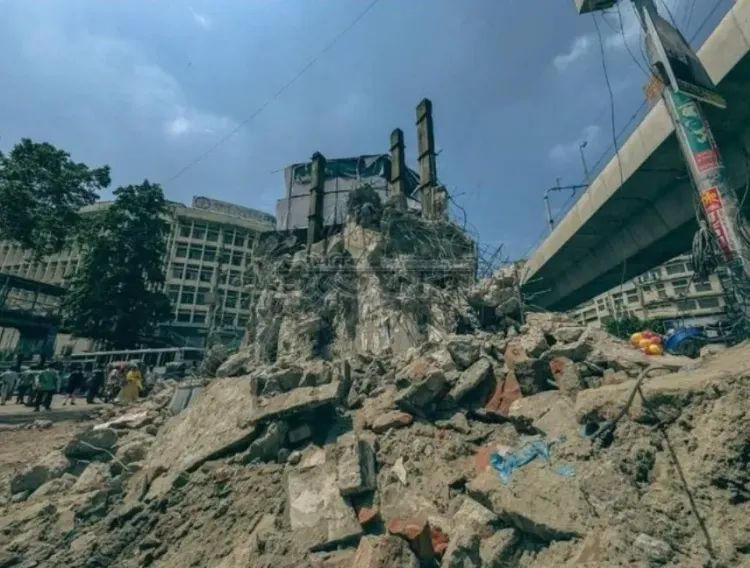
Synopsis
Key Takeaways
- Projonmo Chattar was a pivotal site for the Shahbagh movement.
- The recent demolition reflects ongoing tensions around historical memory.
- Approximately 1500 memorials have faced vandalism under the Yunus government.
- The government's actions may signify a shift in how history is perceived in Bangladesh.
- Public outcry indicates a deep-rooted attachment to these historical symbols.
Dhaka, July 13 (NationPress) Projonmo Chattar, the site that emerged as the focal point of the 2013 'Shahbagh movement' in Bangladesh advocating for the execution of war criminals responsible for atrocities during the 1971 Liberation War, has been torn down, as reported by local media.
A segment of Projonmo Chattar, located in the Shahbagh district of Dhaka, was completely leveled in the early hours of Sunday, contributing to an alarming trend of attacks on structures commemorating the Liberation War by extremist groups.
According to the Officer-in-Charge (OC) of Shahbagh Police Station, Khalid Mansur, the demolition was executed by the Ministry of Housing and Public Works, as per the leading Bangladeshi daily, The Dhaka Tribune.
The installation is now partially destroyed, with one side reduced to rubble, drawing the attention of onlookers, many of whom pause to reflect on what was once a significant emblem.
OC Khalid Mansur stated, "The sculpture falls under the jurisdiction of the Ministry of Housing and Public Works. As it is within their authority, they undertook the demolition at night to prevent public gatherings or unrest. There was no opposition, and no crowd formed."
The OC also mentioned that, according to the ministry, a new installation related to the upcoming July protests is anticipated to be erected at this location.
The Projonmo Chattar had come to represent the essence of the Liberation War and the pursuit of justice against war criminals. It gained particular significance during the 2013 Shahbagh movement, acting as a rallying point for countless individuals, resonating deeply with many in Bangladesh.
Earlier in April, a group of radicals destroyed the Martyred Intellectuals Memorial in Mirpur, Dhaka.
This monument stood as a testament to the genocide inflicted by the Pakistan Army during Bangladesh's Liberation War.
The demolition occurred shortly before the visit of Pakistan's Deputy Prime Minister and Foreign Minister Ishaq Dar to Dhaka.
As footage of the demolition circulated online, numerous Bangladeshis expressed outrage on social media, condemning this disturbing act, which highlights the current lawlessness under the interim government led by Muhammad Yunus.
Experts have perceived this act by the interim government as an affront to the martyrs and part of their appeasement strategy towards Pakistan.
The memorial in Mirpur honored the heroes who laid down their lives for the nation's independence during the conflict with Pakistan.
On the night of December 14, 1971—just two days prior to the Pakistani forces' disgraceful surrender—hundreds of prominent intellectuals were systematically killed by the Pakistani army and their local allies.
In a similar event, the mural of the Liberation War Memorial Mancha in Lalmonirhat was also demolished under the directives of the Yunus-led interim government in March.
This mural illustrated the backdrop of the 1950s language movement, the historic March 7 speech, the War of Independence, the formation of the Mujibnagar government, the dawn of a new era in an independent nation, the 1971 genocide by Pakistan, the victorious freedom fighters, the seven great heroes, the surrender of the Pakistani army, and the jubilant crowd waving the national flag, among other historic moments.
The Dhaka South City Corporation (DSCC) has also renamed various roads, buildings, and structures previously dedicated to Bangabandhu Sheikh Mujibur Rahman, his family, and Awami League leaders. For instance, Bangabandhu Avenue has been renamed to Shaheed Abrar Fahad Avenue, as per a DSCC order.
Since the Yunus government assumed power in August 2024 following the fall of the Awami League government led by former Prime Minister Sheikh Hasina, approximately 1500 sculptures, murals, and memorials have been vandalized, set ablaze, or uprooted across the nation.

